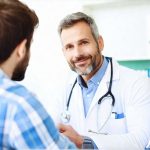Bloating and cramping are incredibly common digestive complaints, often leaving people feeling uncomfortable, sluggish, and generally unwell. While many factors can contribute to these symptoms – from food intolerances and stress to hormonal fluctuations and underlying medical conditions – the role of dietary fat is frequently underestimated. It’s not necessarily about avoiding fat altogether; rather, understanding how different types of fats, and excessive amounts of them, impact our digestive system is key to managing these frustrating experiences. Many people mistakenly attribute bloating solely to carbohydrates or specific food groups, overlooking the significant influence that a high-fat diet can have on gut motility, bile production, and overall digestive efficiency.
The human body is remarkably adaptable, but it has limits when it comes to processing large quantities of fat, especially saturated and trans fats. When we consume more fat than our system can efficiently handle, it triggers a cascade of events that often lead to uncomfortable symptoms. These range from mild discomfort to debilitating pain, significantly impacting quality of life. This isn’t about demonizing fat; healthy fats are essential for numerous bodily functions. However, understanding the connection between excess fat consumption and digestive distress allows us to make informed dietary choices and potentially alleviate these common issues. You can even explore tests that match symptoms to get a clearer picture of your digestive health.
The Digestive Process & Fat’s Role
Digestion is a complex process, beginning in the mouth and continuing through the stomach and small intestine where most nutrient absorption occurs. Fats require a bit more work than carbohydrates or proteins. They aren’t water-soluble, so they need to be emulsified – broken down into smaller droplets – with the help of bile produced by the liver and gallbladder. This emulsification allows enzymes called lipases to effectively break down fats into fatty acids and glycerol which can then be absorbed into the bloodstream. A high intake of fat, particularly saturated or trans fats, can overwhelm this system, slowing down digestion and potentially leading to discomfort.
When we consistently consume large amounts of fat, our gallbladder has to work harder to produce sufficient bile. Over time, this can lead to issues like sluggish gallbladder function or even gallstone formation. Furthermore, high-fat meals slow gastric emptying – the rate at which food leaves the stomach. This means food sits in your stomach longer, increasing the likelihood of bloating and discomfort as fermentation processes occur. The slower transit time also gives bacteria more opportunity to ferment undigested food, resulting in gas production and cramping. Smart ways to investigate these issues can help you pinpoint the cause.
The type of fat matters significantly too. While unsaturated fats (found in avocados, olive oil, nuts) are generally easier for the body to process, saturated and trans fats (found in fried foods, processed snacks, fatty meats) require more effort from the digestive system and are linked to increased inflammation which can exacerbate gut issues. The sheer volume of fat consumed plays a crucial role, even with healthier fat sources. A thoughtfully planned meal bundle can help maintain balance.
Symptoms & Identifying the Connection
Bloating isn’t simply about feeling ‘full’; it’s often characterized by a visible abdominal distension, accompanied by feelings of tightness and pressure. Cramping, on the other hand, refers to painful muscle spasms in the abdomen. These symptoms can manifest differently for each person – some experience sharp, intense pain, while others feel dull, aching discomfort. The timing of these symptoms is often a key indicator. Many people find that bloating and cramping are most pronounced after high-fat meals.
Identifying a link between fat consumption and digestive distress requires careful self-observation. Keeping a food diary can be incredibly helpful. This doesn’t need to be overly restrictive or detailed; simply recording what you eat, when you eat it, and any associated symptoms can reveal patterns. Look for correlations: do your symptoms consistently appear after eating fried foods, fast food, or rich desserts? Pay attention to the quantity of fat in each meal – even seemingly healthy foods like avocados can contribute to bloating if consumed in large amounts. Understanding food temperature is also a crucial factor.
Consider other potential causes, too. Food intolerances (like lactose intolerance), irritable bowel syndrome (IBS), and stress are all common culprits. However, if you consistently experience bloating and cramping after meals high in fat, it’s highly probable that your digestive system is struggling to cope with the workload. It’s important to note this is about identifying a potential trigger, not self-diagnosing. If symptoms are severe or persistent, seeking guidance from a healthcare professional is essential. You might even find relief by understanding functional bloating and its causes.
Modifying Your Diet: Practical Steps
Addressing bloating and cramping related to excess fat consumption isn’t about eliminating fat entirely; it’s about making mindful choices and adjusting your dietary habits. Here’s how you can begin:
- Reduce Portion Sizes: This is often the simplest and most effective change. Even healthy fats should be consumed in moderation. Start by reducing the amount of oil used in cooking, choosing leaner cuts of meat, and limiting portion sizes of fatty foods like nuts and avocados.
- Choose Leaner Protein Sources: Opt for grilled or baked chicken breast, fish, tofu, or lentils instead of fatty meats like bacon or sausage. These provide protein without the excessive fat content.
- Prioritize Unsaturated Fats: Swap saturated and trans fats for healthier options like olive oil, avocado, nuts, seeds, and fatty fish (salmon, tuna). These are easier to digest and offer beneficial nutrients.
- Increase Fiber Intake: Fiber helps regulate digestion and can reduce bloating. Include plenty of fruits, vegetables, whole grains, and legumes in your diet.
The Role of Food Preparation Methods
How you prepare your food significantly impacts its digestibility. Frying foods drastically increases their fat content and makes them harder for the body to process. Opting for healthier cooking methods like baking, grilling, steaming, or air frying can make a significant difference.
When using oil, choose oils with lower saturated fat content and higher smoke points (like avocado oil or olive oil). Avoid reheating fried foods as this further degrades the fats and creates harmful compounds. Consider marinating meats before grilling to help tenderize them and reduce cooking time – reducing the need for added fats during cooking. Small changes in food preparation can have a surprisingly large impact on digestive comfort.
Supporting Your Digestive System Beyond Diet
While dietary adjustments are crucial, supporting your overall digestive health is also important. Here are some additional strategies:
- Stay Hydrated: Drinking plenty of water helps keep things moving through your digestive system and prevents constipation, which can exacerbate bloating.
- Manage Stress: Chronic stress can disrupt digestion. Practice relaxation techniques like deep breathing exercises, yoga, or meditation to manage stress levels.
- Exercise Regularly: Physical activity promotes gut motility and overall health. Aim for at least 30 minutes of moderate-intensity exercise most days of the week.
- Mindful Eating: Pay attention to your body’s signals and eat slowly, savoring each bite. This allows your digestive system to better prepare and process food.
It’s important to remember that everyone is different. What works for one person may not work for another. Experiment with these strategies and find what helps you manage bloating and cramping effectively. If symptoms persist or worsen, consult a healthcare professional to rule out any underlying medical conditions. Sometimes, even something as unexpected as crying can provide relief from bloating. And don’t forget planning ahead – knowing how to avoid bloating during special occasions can make all the difference.


















